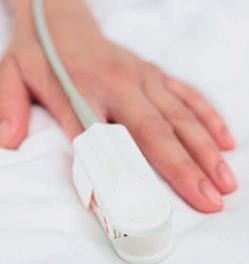Activity trackers and sleep tracking apps offer sleep statistics but some numbers cannot be taken at face value and may be wrong, reports Lifehacker.
Sleep Trackers Don’t Really Analyze Your Sleep (Even If They Say They Do)
We talked to Dr. W. Christopher Winter, a specialist in sleep medicine and neurology and author of The Sleep Solution. Dr. Winter previously brought Fitbit, Jawbone, and phone-based trackers to his sleep lab, and strapped them all to his arm. All of the gadgets could tell when he went to bed and when he woke up, but none of them could reliably tell the different stages of sleep (like REM or dreaming sleep) from each other.
Wearable devices track sleep by movement, as do apps like Sleep Cycle and Sleep as Android, either by detecting when your bed moves or by listening for sounds during the night.
Movement is not the same thing as sleep, Dr. Winter emphasizes, but sleep labs do monitor movement—along with other body functions, like breathing, eye movement, and brain activity.





